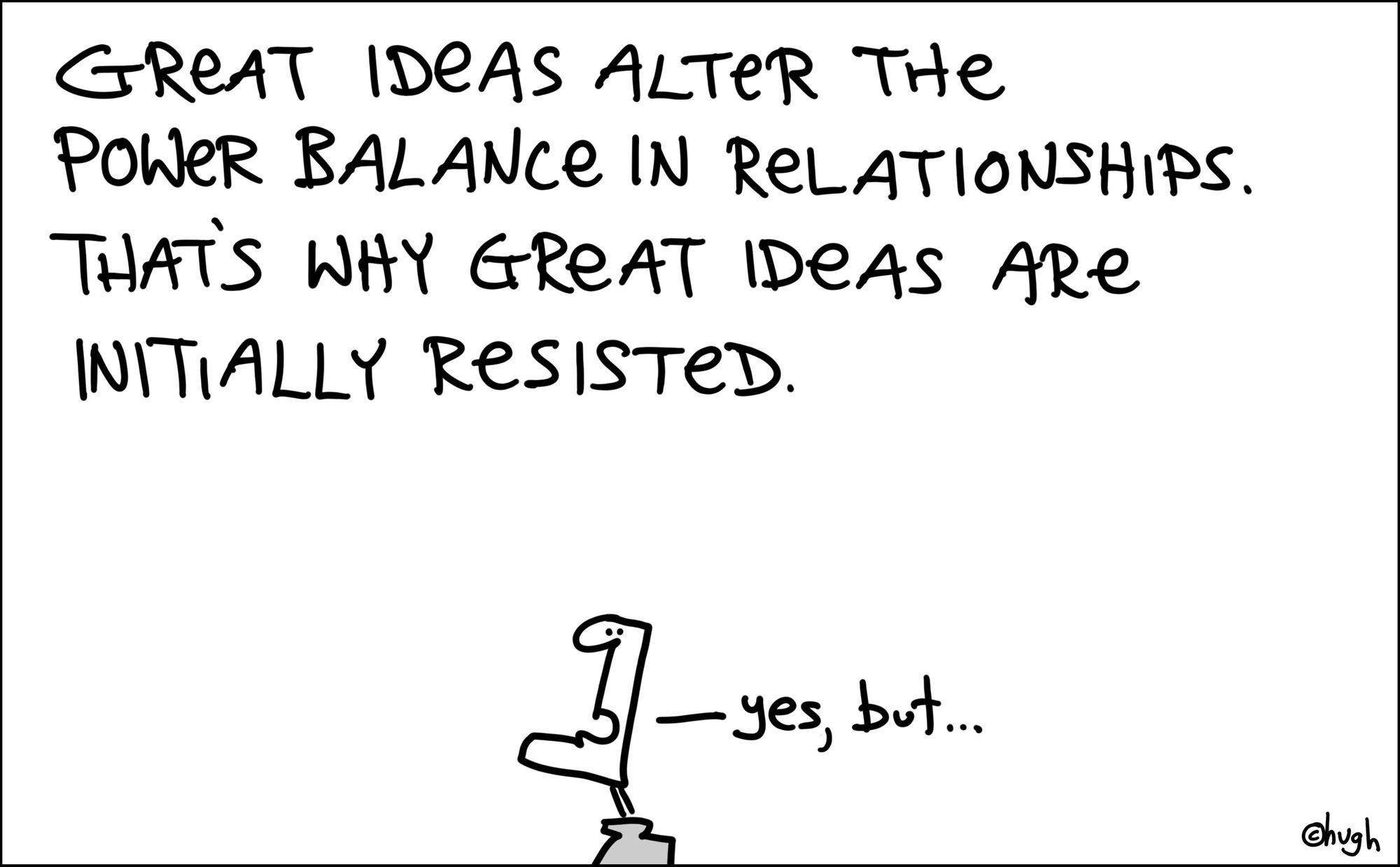A More Beautiful Question
I have found that, independent of age, asking a question usually serves as the basic unit of comprehension. After all it is through these questions that we are able to build understanding about something and can accurately contextualize it.

WHY DO WE ASK?

"Asking questions is what brains were born to do, at least when we were young children. For young children, quite literally, seeking explanations is as deeply rooted a drive as seeking food or water."
I have found that, independent of age, asking a question usually serves as the basic unit of comprehension. After all it is through these questions that we are able to build understanding about something and can accurately contextualize it. Thus, the manner in which we frame our questions exposes as much of our existing knowledge, biases and assumptions as it does our desire to learn. However, the usual questions can only take us so far and it is imperative that, from time to time, we flip the narrative and ask others and ourselves a more beautiful question.

A More Beautiful Question
A more beautiful question is one that is grounded in hope and possibility. It is deeply empathetic, and is as concerned with learning about those who answer it as it is about the information itself.
A more beautiful question changes and often times challenges the existing narrative. It looks to the future carrying multiple realities of the past and the present with the sole intention of building nuance.
A more beautiful question doesn’t alienate or polarize. Instead, it builds true consensus and opinion while galvanizing all stakeholders. It is a game changer.
WHAT MAKES IT BEAUTIFUL?
It isn’t always easy to discern the questions that matter from those that add to the noise, so if you ever feel lost then let these 7 traits be your guide -
1. Is the question transformative or disruptive? Ask yourself what happens next?
2. Does this question excite you or inspire a hint of fear in you?
3. Will this question add to your honor, burdens or responsibilities?
4. If you missed the opportunity to ask this question would you regret it?
5. Will asking this question improve the lives of others?
6. Will this question establish a precedent and challenge the status quo?
7. Will this question bring you closer to your community?
HOW DO WE ASK?
Asking a more beautiful question is easier said than done because it presumes not only mindfulness but a desire to break down old power.

In order to cultivate the ability to ask the questions no one else does we must try to master the 3 core human faults -
Fear
Fear is the root of all human suffering. It is a roadblock for every positive emotion we know and prevents us from gaining mindfulness. It refuses to look at any possibility which doesn’t safeguard or expands its interests immediately and quickly manifests into hatred when changes are introduced.
If you want to combat fear attempt do this -
1. Develop a mindset built on uncompromising optimism.
2. Periodically expose yourself to situations that you dread.
3. Build a streak of small quick wins in these “dreadful” situations.
4. Elevate the fear factor when you begin to feel comfortable.
5. When you fail to win separate the cause from your emotions.
6. Identify the weakest link and attempt to strengthen it.
7. Try again. Fail often. Do not get stuck in the cycle of perfectionism.
8. Repeat this process in parallel to holistically fight multiple fears.
Greed
Greed reduces the inclusive nature of the human spirit to just one - the self. It cultivates egotism and a permanent shortsightedness which encourages habits that subtract such as hoarding, monopolizing, profiteering, etc. Greed has no limit. It is a bottomless pit and continuously preys on our empathy.
If you need to tackle greed then do this -
1. Perform random acts of kindness to strengthen empathy.
2. Identify habits of selfishness and enforce limits on them.
3. Identify and remove dependence on ego based motivators.
4. Replace ego by cultivating traits of servant leadership.
5. Identify and support causes that further your community.
6. Dissociate personal actions from social or professional benefits.
7. Replace zero sum thinking with a win-win outlook.
8. Migrate from a scarcity mindset to one rooted in abundance.
Anger
Anger clouds human judgment and pushes people to give in to aggression. It poisons our behavior with destructive tendencies and aims to prolong situations which cause distress to those we care about. Anger has irreversible side effects and is able to corrode trust and every other emotional bond given enough time.
If you wish to control your anger then do this -
1. Escape the immediacy of the situation and your desire to react.
2. Breathe. Recognize the fragility of the movement. Relax. Respond.
3. Focus on regaining control because anger blocks all your senses.
4. Listen as much as possible. Speak as little as needed.
5. Communicate with as much clarity and authenticity as you can muster.
6. Remember the happiest memory you share with this person.
7. Reframe the argument as possibly your last conversation with this person.
8. Build long-term tolerance to stress through reflection and meditation.
So go ahead and ask more beautiful questions starting today!